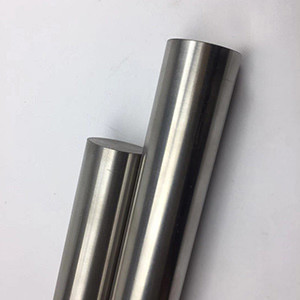At present, nickel titanium alloy has been widely used in orthodontics, prosthodontics and implant dentistry.
Orthodontics
Orthodontics is the science of using mechanical or functional instruments to correct misalignment of teeth. In order to correct the tooth dislocation, external forces must be applied through different instruments. The removable device consists of separate acrylic acid (PMMA) sheets that are attached to the patient’s tooth by a filamentous element. The acrylic sheets are separated and applied to the teeth using an expansion screw (an axis with left and right threads). In fixation, stereotypes (brackets and oral tubes) are applied to the teeth through filamentous elements. Now, in addition to stainless steel, pure titanium is used for fixing and fixing components because of its light weight and high corrosion resistance.
For dental arch wire and spring elements, titanium alloy is particularly attractive because of its lower elastic modulus and higher strength than stainless steel and pure titanium. The tensile strength of type titanium alloy can reach 1300MPa after cold deformation. The processing performance of alloy is better, and it can even be produced into filament number one pieces. The mechanical properties of cold-worked grade 4 pure titanium are similar to those of alloy, so it can replace alloy. In addition, Nickel titanium shape memory alloy wire is applied because of its pseudo-elasticity, which is based on stress-induced Martensitic transformation.
Prosthodontics
Prosthodontics refers to the use of prostheses to replace missing teeth or other parts to reproduce the masticatory, aesthetic and articulatory functions of teeth. As a new material in dental laboratory, the difficult problem of titanium processing in early stage has been solved, and its application in tooth repair is becoming more and more successful.
Titanium is used for both common castings and ceramic-lined tooth-binding crowns and Bridges. Titanium parts are often fabricated with dental precision casting. For the large structure of fixed implants, the electrochemical performance of cast titanium is comparable to that of industrialized bone implants, and the electrochemical performance of cast titanium is comparable to that of industrialized bone implants, and the harm of electrochemical and corrosion effect is reduced.
In addition, compared with gold-based alloys, titanium has the advantage of economy. Therefore, it is considered as an ideal material for compound, permanent and removable repairs. Compared with other alloys with coated ceramics, titanium has a very low thermal expansion coefficient, so it needs to be inlaid with suitable ceramics. The degree of oxidation, the coarsening of grain and microstructure and the transformation of titanium at 882℃ were increased at high temperature. Therefore, the maximum roasting temperature of titanium coated ceramics is 800℃.
Dental implants
Implant dentistry refers to the implantation of (artificial) struts into the jaw via periosteum or intraosseous internal fixation prosthesis to reproduce masticatory function, aesthetic characteristics, and articulatory function. In modern dental surgery, intraosseous implants are a recognized method of replacing teeth, creating permanent denture struts, and stabilizing detachable dentures. Titanium and titanium alloy dental implants have been used for more than 40 years and are manufactured according to corresponding standards. A1203 shot peening or titanium plasma flame treatment is usually used to treat the surface of the coarsened implant to promote the adhesion of the implant to the bone. Local use of an absorbable hydrocarbon apatite layer in the surface area (cortical layer) will also promote adherence to bone at key implant sites.
The specific application of titanium alloy in Dentistry.
| Usage | Material | Processing method |
|---|---|---|
| Artificial tooth root | CP titanium wire, CP titanium block, Ti6Al4VELI wire, nickel titanium alloy wire | Forging, deformation, Casting |
| Orthodontic wire | nickel titanium alloy wire, β titanium alloy wire | Deformation (drawing) |
| Crown Bridge for Dental Caries | CP titanium block, titanium alloy target | Casting |
| Crown and bridge for anterior teeth (for sintering) | CP titanium, titanium alloy | Casting |
| All gums | Ti6Al4VELI, CP titanium | Deformation, imprinting, Casting |
| Local gum | Ti6Al4VELI, CP titanium | Deformation, imprinting, Casting |
| Patch | CP titanium | Casting |
| Jawbone implant | CP titanium | Deformation |
Currently there are the following specifications in stock.
GR23 titanium wire ASTMF136 + ISO5832
Flat wire 2 * 1
Flat wire 2 * 0.1
Round wire Dia0.8 mm
Nitinol (nickel titanium) wire
Flat wire 2*0.1 ASTMF2063
Straight wire ntinol SE 508 Dia1.3*500/550 ASTMF2063
Nitinol (nickel titanium) sheet
0.3*50*100mm AF: 25° C, Yield Strength Austenite: 200 MPa
0.4*100*150mm ASTMF2063 AF: 25-35° C
Dental applications have high requirements for material marking, so we specially order laser marking machines with different molds to meet the needs of customers.

For more information,please feel free to contact us.

